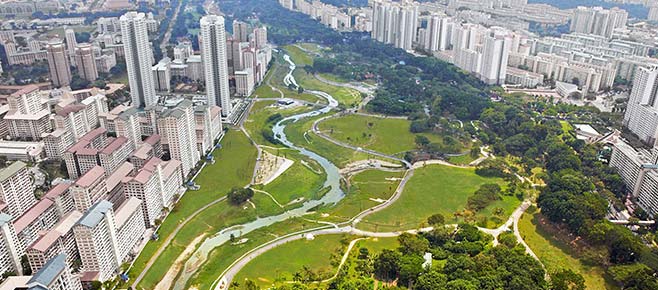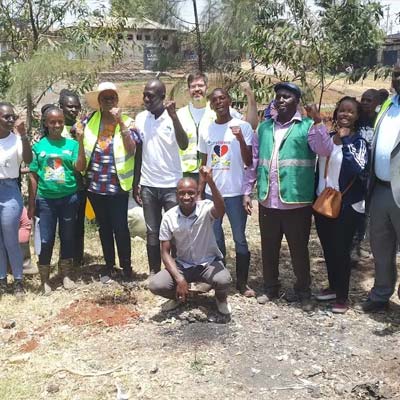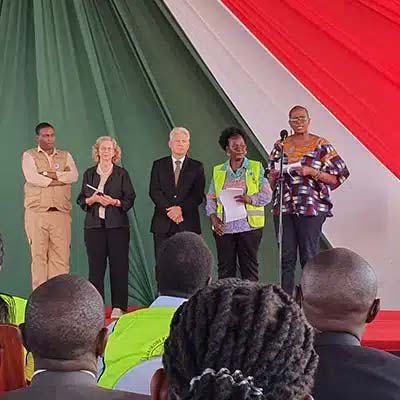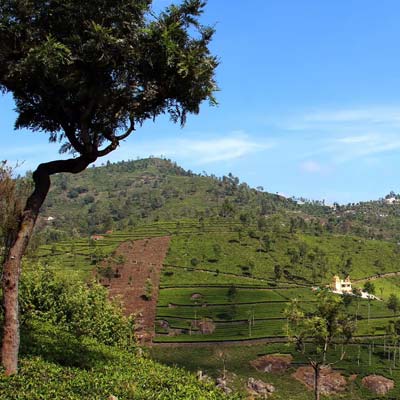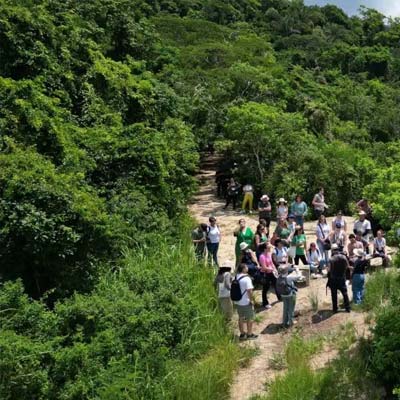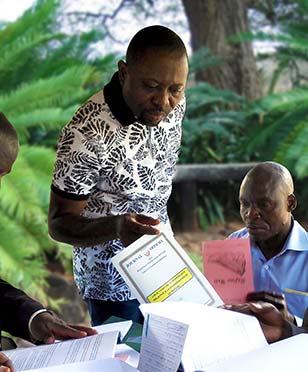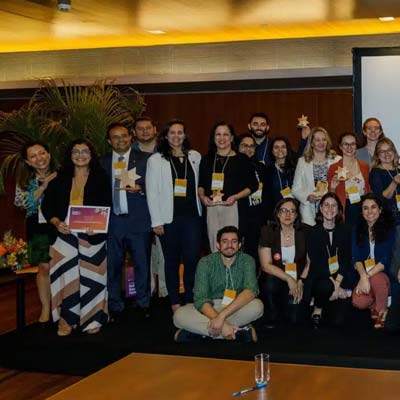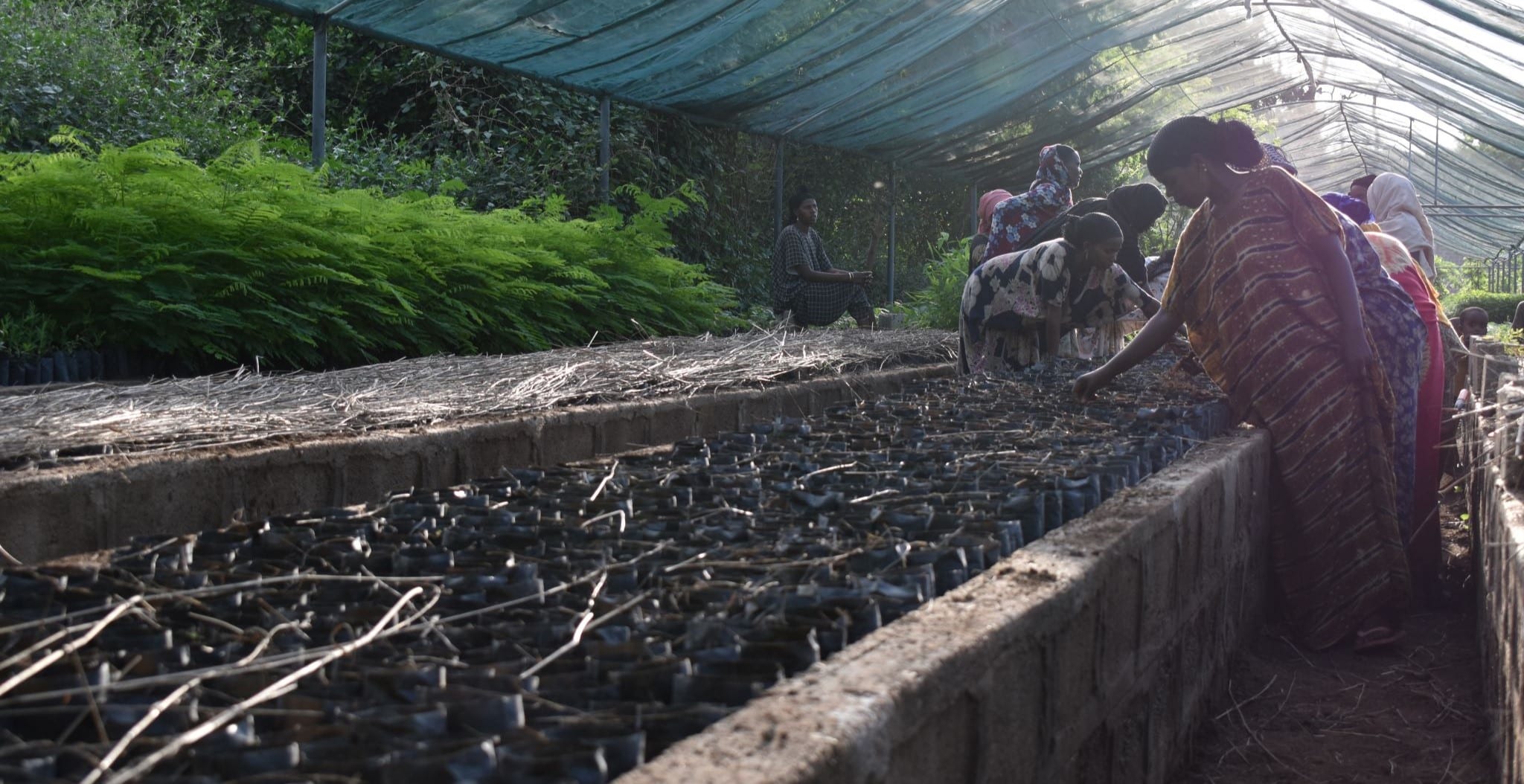Instruments like forest sustainability certifications and eco-labeling can help identify sustainable sources of forest products and thereby forest conservation. However, high costs of obtaining these credentials may be prohibitive for many small and medium-sized enterprises.19 Compensating or subsidizing smaller entreprises or collectives to meet sustainability standards, or direct farm-to-buyer relationships can help address these barriers.
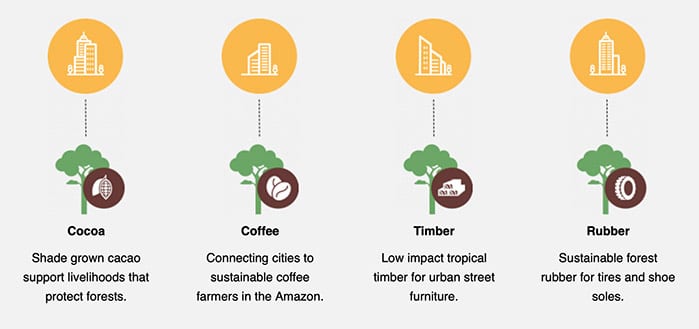
Applying fair trade social standards to procured products can also make urban supply chains more equitable.
What is Fairtrade? from Fairtrade International on Vimeo.
National Australia Bank incorporates social and sustainability standards in their procurement policies and practices. They purchase fair trade tea, coffee, hot chocolate, and sugar for their staff across Australia, making them the country’s largest fair-trade workplace. Through their Reconciliation Action Plan, they are now exploring inclusion of indigenous businesses in their suppliers list to support employment of indigenous people.
